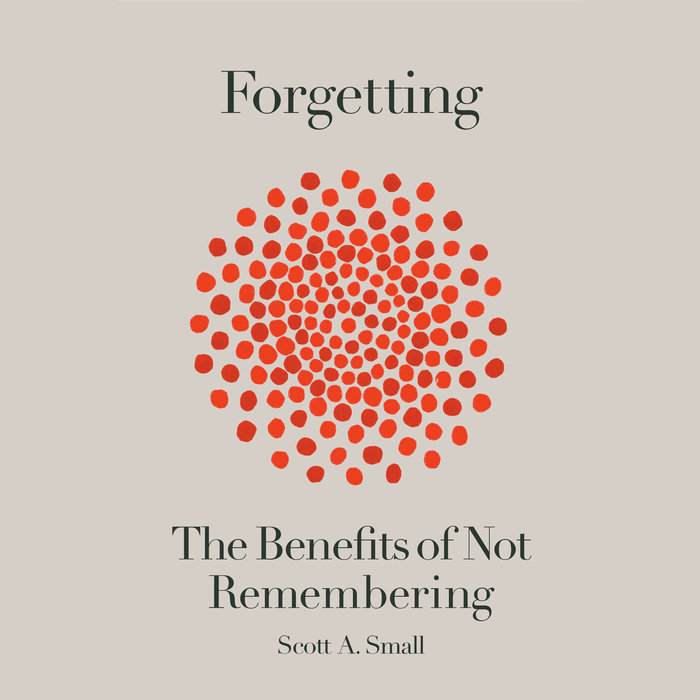Virtually everyone has experienced the frustration and/or embarrassment of forgetting. And as people age, forgetting becomes more frequent, at which point the brain adds anxiety or fear to the mix. But is forgetting always a bad thing?
Necessary Forgetting
On the contrary, research indicates that forgetting might be necessary to our mental functioning.
According to Dr. Scott A. Small, professor of psychiatry and neurology at Columbia University, a “constellation of findings” indicates that sifting and discarding the vast amount of information the brain collects is a necessary function. It may even be as essential for survival as the gathering of useful knowledge. And some researchers (including Small) are exploring ways that not being able to forget might provide insights into dealing with psychological conditions such as post-traumatic stress disorder.
“We were all taught forever, everyone, that forgetting is a passive breakdown of the memory mechanisms. The fundamental insight—the eureka, I think, of the new science of forgetting—is that our neurons are endowed with a completely separate set of mechanisms … that are dedicated to active forgetting.”
Dr. Scott A. Small
Director of Alzheimer’s Disease Research Center at Columbia University
Author of Forgetting: The Benefits of Not Remembering
Oliver Hardt, an assistant professor of psychology at McGill University says forgetting is “one of the most fundamental aspects of a memory system. Without forgetting, nothing would work.” You may notice that your hairdresser/barber is wearing a green plaid shirt, but remembering that long term would just (in my words!) junk up your brain.
Neuroscientists have discovered that it is actually a positive thing that we cannot remember every detail of every day. Dr. Andre Fenton, a neuroscientist at New York University, claims that would be potentially very distracting. For example, experiencing intruding memories could make it very difficult to focus during cognitive tasks like doing homework or deciding what to eat for dinner.
Beneficial Forgetting
As Ingrid Wickelgren wrote in Forgetting is Key to a Healthy Mind, being able to forget has ripple effects on personality. If you cannot shake negative memories, for example, you might fall easily into a bad mood. Although the inability to forget does not cause depression, research shows that depressed patients have difficulty putting aside dark thoughts. In other words, being able to forget negative, stressful, or traumatic events and information might be beneficial to our mental health.
More generally, according to the Columbia University Department of Psychiatry, “The ability to forget helps us prioritize, think better, make decisions, and be more creative. Normal forgetting, in balance with memory, gives us the mental flexibility to grasp abstract concepts from a morass of stored information, allowing us to see the forest through the trees.”
And this isn’t just a Columbia opinion!
Oliver Hardt is among the many scientists who suspect that this culling of nonessential memory is one of the key purposes of sleep. A good night’s sleep quite literally produces a clearer mind.
Why Do We Forget?

New research by Blake Richards and Paul Frankland indicates that being forgetful doesn’t mean you’re losing your marbles. In fact, it could mean that you are exceptionally intelligent. People with excellent long-term memories often forget details once they are no longer needed. On the other hand, people whose brains are not cluttered by memories of minutiae may be better at intelligent decision-making.
Both memory and forgetting are based on brain physiology/chemistry. The synaptic connection point between neurons is what makes a memory. For transient short-term memories, that change is temporary. The more a person revisits and repeats a memory, however, the stronger and more enduring that change becomes.
That may be good or bad!
Emotional memories are often difficult to forget because of the involvement of an area of the brain that plays an important role in controlling behaviors that are important to your survival, including feelings of fear. People with post-traumatic stress disorders may have an overgrowth of synaptic connections in the amygdala (the part of the brain that stores fear memories).
Dr. Sheena Josselyn, a senior scientist at the Hospital for Sick Children, and a professor of psychology and physiology at the University of Toronto, researches precisely how humans learn and remember. The purpose of memory, she says, “is not to allow us to sit back and say, ‘Oh, do you remember that time?’ It really is to help us make decisions.”
How to Forget?
Choosing to forget something might take more mental effort than trying to remember it, researchers at The University of Texas at Austin discovered. But given the results summarized above, it’s probably worth the effort. Unfortunately, the more emotionally charged a memory is, the more difficult it will be to forget.
Researchers are working to develop treatments to help patients deliberately forget targeted memories. Patients can use these “active forgetting” techniques, such as identifying and removing memory cues or consciously interrupting and shutting down memory recall, to weaken the hold of traumatic memories. However, like most medical treatment, this should be done under the supervision of a licensed professional.
According to Small, one of the best ways to help your brain forget things you’d like to forget is to stay social and engage with life. He theorizes that this might be one of the reasons why the Coronavirus pandemic has been so damaging to the world’s mental health. Quarantined and isolated people stayed indoors and brooded on painful memories rather interacting socially. As restrictions lift, try going out among people to make yourself forget!
Bottom Line: A consensus seems to be emerging that forgetting is both inevitable and valuable.





